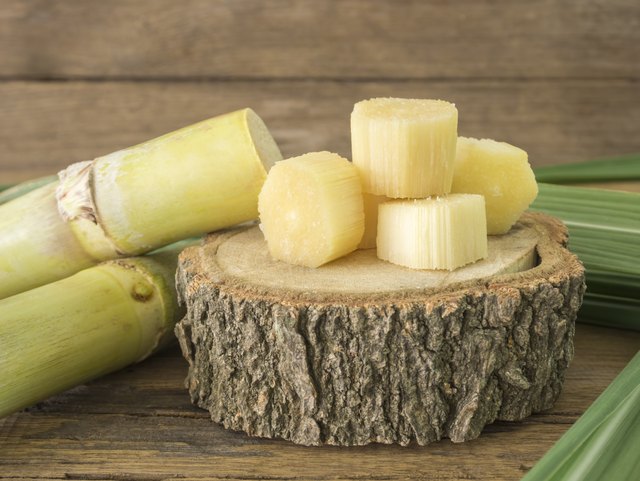Exploring the Global Impact of Sugar and Cane on Economy and Culture
Exploring the Global Impact of Sugar and Cane on Economy and Culture
Blog Article
Why Walking Cane Sugar Processing Chemicals Are Critical for Modern Sugar Refining
The role of walking cane sugar handling chemicals in modern sugar refining can not be overemphasized, as they are essential to boosting both the efficiency of removal and the general top quality of the end product. Agents such as phosphoric acid and particular flocculants are utilized to eliminate pollutants, leading to sugar that not just meets consumer assumptions but likewise sticks to industry standards. Nonetheless, the effects of these chemicals prolong beyond quality, discussing market characteristics and ecological factors to consider. This raises important inquiries concerning the sustainability of such methods and their impact on the future of sugar production.
Duty of Handling Chemicals
The efficiency of walking stick sugar processing pivots considerably on the strategic application of processing chemicals. These chemicals play a critical function in enhancing the performance and quality of sugar removal and refining. From the initial phases of juice extraction to the last filtration actions, processing chemicals help with numerous critical operations.
In the extraction phase, chemicals such as phosphoric acid and calcium hydroxide are used to maximize the information process, aiding to get rid of pollutants and put on hold solids from the walking cane juice. This not only enhances the return but likewise ensures the clearness of the end product. In addition, agents like flocculants aid in the rapid settling of pollutants, thus enhancing the total procedure.
As the processing advances, chemicals are used in decolorization and condensation phases. Triggered carbon and ion exchange materials offer to get rid of shade and smell, guaranteeing that the polished sugar meets consumer quality standards. Inevitably, the role of handling chemicals expands past functional performance; they considerably impact the sensory qualities of the last item, adding to market competition. Thus, the meticulous choice and application of these chemicals are important for achieving ideal results in walking stick sugar processing.
Trick Types of Chemicals
Cane sugar handling counts on a selection of key chemicals that facilitate each phase of production. These chemicals play necessary roles in clearing up, whitening, and purifying the sugar removed from cane.
One primary classification of chemicals includes flocculants, such as polyacrylamide, which aid in the information process by advertising the aggregation and settling of contaminations. In addition, calcium hydroxide is often used to neutralize level of acidity and help in the elimination of non-sugar components.
Lightening agents, such as turned on carbon and sulfur dioxide, are made use of to decolorize the syrup, leading to a clearer end product. These chemicals aid eliminate shade compounds that might affect the sugar's appearance and marketability.
Moreover, phosphoric acid functions as a pH regulatory authority throughout the processing phases, making sure ideal conditions for the enzymatic tasks associated with sugar extraction and filtration.
Other essential representatives include edta (ethylenediaminetetraacetic acid), which chelates steel ions that can catalyze undesirable responses, and salt hydroxide, which helps in pH control throughout the refining process. Collectively, these chemicals enhance efficiency and ensure a premium cane sugar item.
Advantages for Sugar Quality
Often ignored, the use of specific handling chemicals considerably improves the total high quality of cane sugar. These chemicals play a crucial function in refining procedures, making certain that the final item satisfies use this link strict sector requirements for purity and preference.

In addition, refining chemicals aid in attaining a constant granulation and structure, which are important for customer acceptance. By regulating the crystallization process, these chemicals guarantee that the sugar crystals create uniformly, causing a more attractive product that dissolves well in various applications.
Moreover, the use of these chemicals can improve the shelf life of walking cane sugar by decreasing moisture absorption and microbial development. On the whole, the strategic application of processing chemicals is essential for supplying top quality cane sugar that meets consumer assumptions and sector demands.
Ecological Effect Factors To Consider

In addition, the energy-intensive nature of sugar refining, intensified by chemical use, usually results in increased carbon exhausts. This adds to climate change and raises worries concerning the sustainability of current refining methods. Additionally, the sourcing of these chemicals might entail practices that intimidate biodiversity, such as monoculture farming, which minimizes the durability of agricultural communities.

To minimize these effects, sugar refiners are increasingly discovering lasting options and adopting ideal methods that reduce chemical usage. Applying extensive ecological management systems can aid ensure that the refining process straightens with ecological criteria and promotes biodiversity. Eventually, a well balanced approach that focuses on both sugar top quality and environmental stewardship is crucial for the long-term practicality of the sugar market.
Future Trends in Refining
As the sugar industry grapples with the ecological difficulties connected with traditional refining techniques, innovative strategies are arising to boost both efficiency and sustainability. One considerable pattern is the adoption of green chemistry principles, which focus on using safe, naturally degradable processing chemicals. This shift not just minimizes environmental effect but also addresses consumer need for cleaner production approaches.
Another encouraging development is the application of advanced filtration technologies, such as membrane splitting up and adsorption processes. These methods improve the quality and high quality of the sugar while reducing the quantity of wastewater produced throughout refining. Furthermore, the integration of electronic modern technologies, consisting of IoT and AI, is changing functional performance by making it possible for real-time tracking and predictive maintenance, thus decreasing source waste.
Additionally, using by-products review from sugar refining, such as bagasse and molasses, is acquiring grip. These materials can be transformed right into biofuels or value-added products, adding to a round economic situation within the industry. Collectively, these patterns indicate a shift in the direction of more sustainable methods that not just improve operational efficiency yet additionally straighten with international sustainability goals, making certain the future practicality of sugar refining.
Final Thought
Walking cane sugar processing chemicals are crucial in modern sugar refining, substantially improving the efficiency and high quality of sugar removal. The calculated usage of these chemicals not only boosts the purity and flavor of the end product yet also ensures regular crystallization and texture. As the sector increasingly read the article focuses on sustainability, the fostering of environmentally-friendly handling agents is likely to shape future patterns in refining, inevitably causing better products and expanded life span for consumers.

Ultimately, a well balanced strategy that focuses on both sugar high quality and ecological stewardship is important for the long-lasting feasibility of the sugar market.
Cane sugar handling chemicals are vital in modern-day sugar refining, dramatically improving the efficiency and high quality of sugar extraction.
Report this page